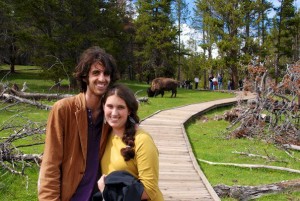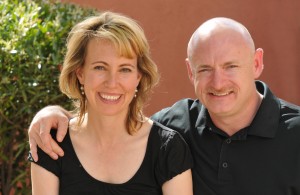By my junior year at Scripps, I was feeling the pressure to have a post-grad direction. As I buckled down to try to map out my life, or at least figure out how I would keep myself occupied the summer before senior year, I came to the realization that my plan-making and goal-setting was going to be severely hampered hindered curtailed influenced by my relationship.
This was hard for me to come to terms with, as I’m sure it is for other fiercely independent women who have grown up in an environment with the message that no man is worth sacrificing your dreams. I have to admit that I felt some amount of guilt, as if I was letting my feminist foremothers down by considering my boyfriend in the life plans I was forming, particularly because my partner is of a certain Myers-Briggs typology that tends not to prioritize planning. If I am compromising from the very beginning, while he continues to fly by the seat of his pants, I can’t help but think that I will wind up sacrificing the most in the long run.
This brings us to the classic Scripps psychology survey question: What is more important to you—your relationship or your career? I have always maintained that I shouldn’t have to choose. Am I being naïve or an idealist?
My senior year, as I started applications for jobs and fellowships and my partner continued to pretend life after college wasn’t going to exist, I decided not to worry too much about the compromises I assumed I would have to make. My partner doesn’t yet know what kind of career path will make him happy, and so I cannot possibly compromise my own goals to get him there faster.
Together, we talked about our life plans, career goals, our dreams, and I realized I’m lucky. At the cusp of launching onto my career path, I have the love and support of a stable relationship, but without the inhibitive requirement that we must physically inhabit the same space. After graduation, I was headed to teach English in Bulgaria. He eventually came to the conclusion that he wanted to flex his language skills in Russia. And after that, who knows? We may come together in the same city for a while and then move apart again as one or both of us pursue grad school. I like the wild and open spaces of the American West, and he prefers the constant chaos of cities like Chicago or New York. Our difference in geographic preferences, which may have been a deal breaker in another age, are part of what allow us to follow our dreams independently, even as we continue our relationship and support each other from afar.
Long distance relationships are not easy, and they don’t come highly recommended. But by now, my partner and I are veterans. We are, in fact, quite good at long distance after much practice and frequent Skype calls. We are both skilled communicators and being apart forces us to be much more intentional with the time we do have to talk to each other. What, on the one hand, could be considered a challenge for the relationship is, on the other hand, a chance to balance relationship and career. For now, at least.
Whenever I am in need of inspiration in the combination of relationships and careers, I look to Scripps alumna Gabrielle Giffords ’93 and her husband, Captain Mark Kelly. While she followed her career to Capitol Hill, her husband followed his into space. Russia and Bulgaria don’t seem so far apart in comparison.



Ariel, thank you for writing about this ever-relevant and always touchy subject among so many independent women. As you know, there are so many fields of thought within the feminist collective. Many of these fields have uniting concepts in which nearly all feminists can agree upon. To name a couple: women have as much worth as men and societal pressures/expectations are harmful to men and women, alike. So, why are we so quick to write off the ability of men to serve as support as we seek to pursue our hopes and dreams? Men can be our allies, right? Is a woman not a “real feminist” if her chosen male ally is also her romantic partner?
This concept – what a “true feminist” is or does or looks like — reminds me of Ann Friedman’s (annfriedman.com) response to Deborah Needleman, Editor of T Magazine, and her tweet, which read, “The sexy (sorry, feminists), smart, sassy Katie Roiphe live on stage @nypl on Wednesday night”.
Ann’s reaction? Witty, as usual: http://sorryfeminists.tumblr.com/
Ann’s tumblr does the very thing feminists agree we can and should do: it challenges these stereotypes of feminism and what a feminist looks like. If we can agree that we ought to reject society’s definition of women and men, why are we so quick to judge others’ in how feminism looks in their lives?
Many, many Scripps women are successfully balancing their independent journeys to their dreams, AND their relationships. It sounds like you have created that sense of balance for yourself. I, myself, am in a deeply committed relationship with a person who has served as a constant source of support in my career aspirations, and yet I truly consider myself a fiercely independent woman. My partner is a man, and he’s also a feminist.
I challenge all Scripps women to consider their own conceptualization of what feminists look like, act like and think like. I hope you will all consider how you can support your fellow Scripps women in their personal journeys, even if those journeys aren’t exactly how you define feminism in your life. Challenge yourselves to consider that the diversity in thought among feminists can sometimes be frustrating, but it’s what drives, enhances and continually shapes the movement.
Thanks for this thoughtful response, Lesley!
It always felt to me that talking about relationships *and* career planning together was taboo. I’m not sure if it was because the ambiguity (for me) of “relationships versus careers” within feminism, or if it was the [perceived?/real?] stigma of being in a long-term relationship at such a young age. I always felt uncomfortable answering the question “how long have you been together?” and the inevitable follow up “do you plan to get married?” The questions seem innocuous enough, but the insecurity/skeptic in me always felt it was the asker’s litmus test for how childish and naïve I am.
It wasn’t until I graduated that I realized how many people were continuing relationships they had started in college. Even among my Fulbright cohort, many are in committed long-term and now long-distance relationships with partners back home. I never knew how many people planned to continue their relationships because it felt like no one ever talked about it. I know it was eating my brain up senior year, and I wonder how many other Scrippsies go through similar agony.
When I enrolled in Scripps, my partner facetiously warned me not to become a radical feminist. Four years later, I’m proud to see that he is as “radically” feminist as myself, and I could not ask for a better supporter.
Thanks so much for writing about this, Ariel. I’ve been with my boyfriend for almost 4 years now, and I also have felt the tension between having make a “choice” between my future career and relationship. Since I’m one academic year ahead of him, I constantly think about how much influence he should have what my life after college looks like. For me, what’s difficult is that these different parts of my life are constantly influencing and shaping each other, so it seems impossible to have a plan and not lose something (or someone) in the process. Although we plan on being together after college, we have yet to see where our life paths will cross or diverge.
I believe that it’s hard, but healthy, to not let fear dictate who we’re with or what career path we pursue. It may be a fear of being alone, not being a “good” feminist, lack of success, or something else entirely. The truth is that we are more than what we do and the people that we’re with, although they do shape us significantly. When I find myself caught in this chasm, a quote by Corrie Ten Boom reminds me that “Worry does not empty tomorrow of its sorrow, it empties today of its strength.” Thanks so much for writing about this and sharing your insights!